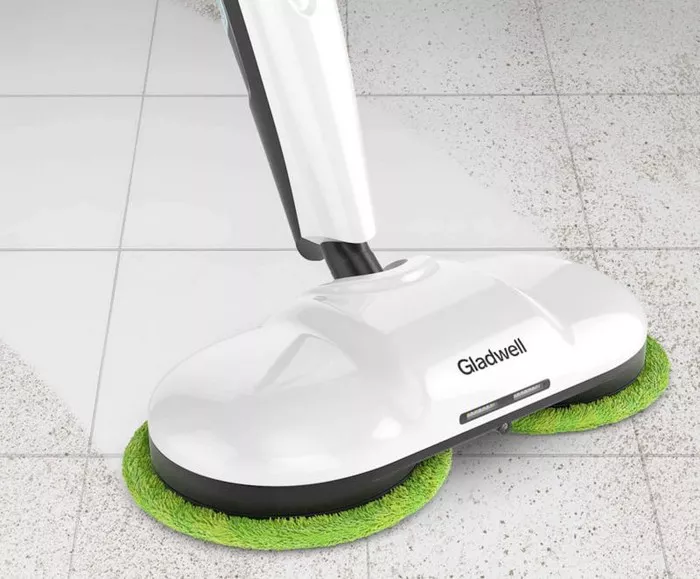Maintaining the cleanliness of tiles can significantly enhance the aesthetics and hygiene of any space, whether it’s a home, office, or commercial establishment. However, manual cleaning methods often fall short when dealing with stubborn stains, grime, and mold. This is where tile cleaning machines come into play. With a plethora of options available in the market, choosing the right one can be a daunting task. In this guide, we’ll delve into the factors to consider when selecting the best tile cleaning machine to meet your needs.
Factors to Consider
1. Cleaning Mechanism
Tile cleaning machines employ various cleaning mechanisms, including steam, pressure washing, and scrubbing. Each mechanism has its advantages and is suitable for different types of tiles and levels of grime. Steam cleaners are effective for sanitizing and removing light stains, while pressure washers are ideal for outdoor tiles and heavy-duty cleaning tasks. Scrubbing machines provide deep cleaning by agitating the dirt from the surface.
2. Power Source
Tile cleaning machines are powered by electricity, gas, or battery. Electric machines offer consistent power but require access to power outlets. Gas-powered machines provide more mobility but emit exhaust fumes and require regular refueling. Battery-powered machines offer convenience and portability but may have limited run time.
3. Size and Portability
Consider the size and weight of the tile cleaning machine, especially if you need to maneuver it through tight spaces or multiple floors. Compact and lightweight machines are easier to transport and store but may sacrifice power and capacity compared to larger models.
4. Versatility
Choose a tile cleaning machine that can handle various surfaces, including ceramic, porcelain, marble, and stone. Some machines come with interchangeable brushes or nozzles to adapt to different cleaning requirements.
5. Durability and Maintenance
Invest in a high-quality tile cleaning machine that is built to last and requires minimal maintenance. Look for durable materials, such as stainless steel or heavy-duty plastic, and check if replacement parts are readily available.
6. Cost and Budget
Set a budget based on your cleaning needs and frequency. While some tile cleaning machines come with advanced features and a higher price tag, there are budget-friendly options available that offer decent performance for light to moderate cleaning tasks.
Top Picks for Tile Cleaning Machines
1. Bissell CrossWave Floor and Carpet Cleaner
The Bissell CrossWave is a versatile cleaning machine that vacuums and washes floors simultaneously, making it ideal for tiled surfaces. It features a multi-surface brush roll and a two-tank system for separating clean and dirty water.
2. Kärcher FC5 Hard Floor Cleaner
The Kärcher FC5 combines vacuuming and mopping in one efficient step, reducing cleaning time and effort. Its dual-tank system keeps clean and dirty water separate, ensuring hygienic cleaning results.
3. Hoover FloorMate Deluxe Hard Floor Cleaner
The Hoover FloorMate Deluxe offers three cleaning modes for washing, scrubbing, and drying hard floors, including tiles. It features SpinScrub brushes and a dual-tank system for effective and thorough cleaning.
4. Dupray Neat Steam Cleaner
The Dupray Neat is a powerful steam cleaner that effectively sanitizes and cleans various surfaces, including tiles, without the use of harsh chemicals. It heats up quickly and provides continuous steam for up to 50 minutes.
5. McCulloch MC1385 Deluxe Canister Steam Cleaner
The McCulloch MC1385 is a heavy-duty steam cleaner that delivers superior cleaning performance on tiles and grout. It comes with a wide range of accessories for tackling different cleaning tasks, from floors to countertops.
Conclusion
Choosing the best tile cleaning machine requires careful consideration of factors such as cleaning mechanism, power source, size, versatility, durability, and cost. By evaluating these factors and exploring top-rated options like the Bissell CrossWave, Kärcher FC5, Hoover FloorMate Deluxe, Dupray Neat, and McCulloch MC1385, you can find a machine that meets your specific cleaning needs and budget. Investing in a quality tile cleaning machine will not only save you time and effort but also ensure sparkling clean and hygienic tiles for years to come.
FAQs
Q1. What is the difference between a steam cleaner and a pressure washer for tile cleaning?
A1: Both steam cleaners and pressure washers are effective for tile cleaning, but they operate using different mechanisms. Steam cleaners use hot steam to sanitize and dissolve dirt and grime, making them suitable for indoor tiles and delicate surfaces. Pressure washers, on the other hand, use high-pressure water jets to blast away dirt, mold, and stains, making them ideal for outdoor tiles and heavy-duty cleaning tasks.
Q2. Can tile cleaning machines remove tough stains and grout discoloration?
A2: Yes, many tile cleaning machines are designed to tackle tough stains and grout discoloration effectively. Machines with scrubbing brushes or steam jets can agitate and loosen stubborn dirt, while specialized cleaning solutions can help break down stains and restore the original color of grout lines. However, some deep-seated stains may require multiple cleaning sessions or professional intervention.
Q3. Are battery-powered tile cleaning machines as powerful as electric or gas-powered ones?
A3: Battery-powered tile cleaning machines offer convenience and portability but may have limitations in terms of power and run time. While advances in battery technology have improved the performance of cordless machines, they may not be as powerful as their electric or gas-powered counterparts, especially for heavy-duty cleaning tasks. It’s essential to consider your cleaning needs and the runtime of the battery before choosing a battery-powered tile cleaning machine.

